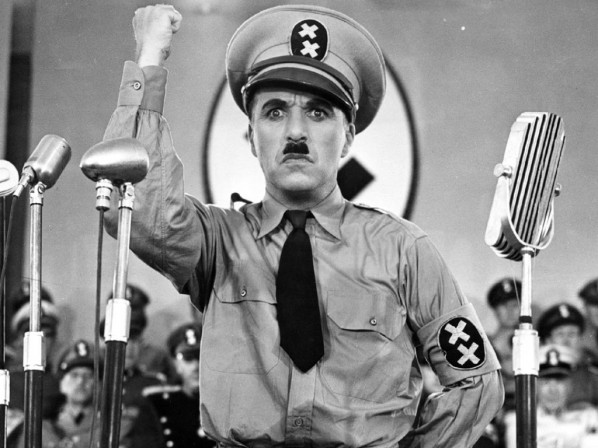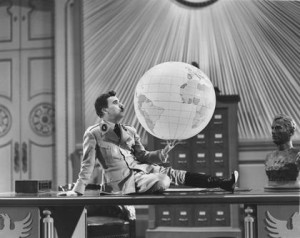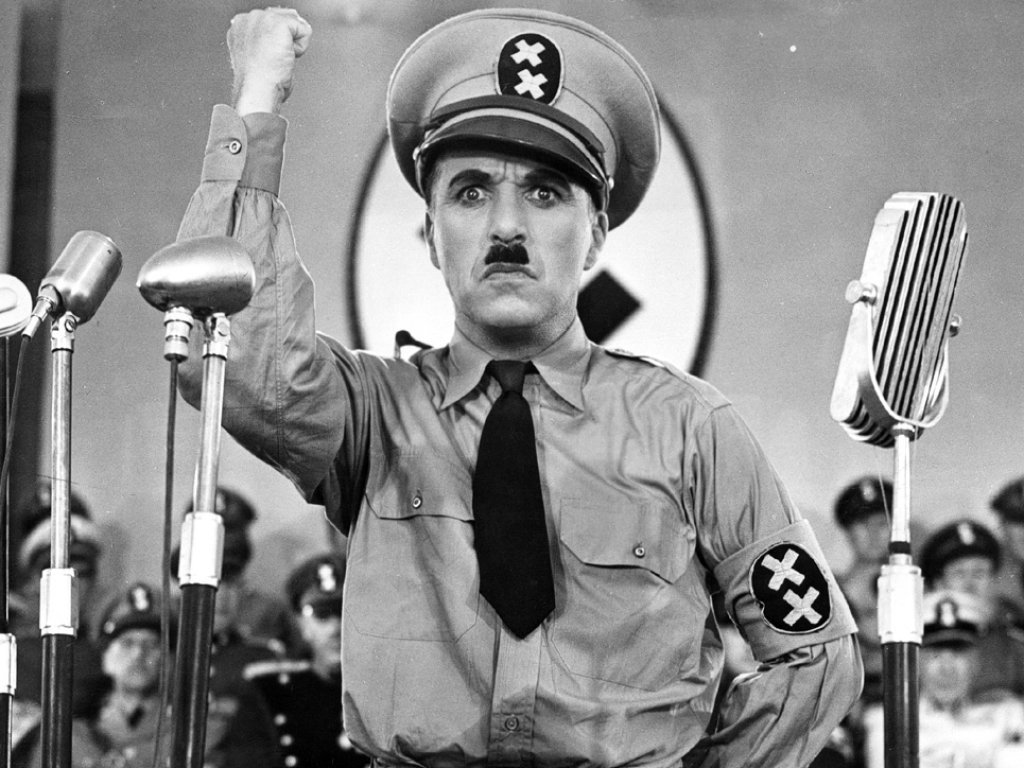
Time and again, a movie came along on TV that I had to stop and watch. Sometimes, it’s by pure accidental channel flipping. Other times, I will schedule and plan my day in accordance so I can be home and ready to watch said movie. I’ve been known to get up at 3 or 4 in the morning just so I can catch a movie I’ve wanted to see. However, since BU does not provide Turner Classic Movies on its basic cable, I’ve been starved from my movie addiction; reduced to watch cut up versions in poor quality rips off on YouTube.
I wish I could say I’m kidding when I say I have a Netflix lust. Alas, for those enjoy the privilege of a movie library at your fingertips, I can share a handful of suggestions for movies you may not have even known existed (but are just as awesome as some titles already in your queue).
First Pick: “The Great Dictator”
What’s Charlie Chaplin doing dressing up as Adolf Hitler? Or was it Adolf Hitler that was dressing up like Charlie Chaplin?
Way back in the early forties, the U.S. wanted nothing to do with the turmoil brewing abroad and adopted a sort of “don’t bother me, I’m busy” attitude called isolationism. This did not sit well with one of America’s most beloved comedians, Charlie Chaplin, who heard of the discrimination and cruelties that were being carried out under the guise of law in Europe. Mind you, this was a comedian who made his fame and fortune playing a down and out tramp standing up for the plight of the common man. It also helped that apparently friends of his started joking about his resemblance to Germany’s Fuhrer. Or was the Fuhrer trying to look like the lovable Tramp?
Nonetheless, fighting production and pressures from associates not to declare war on Hitler, Chaplin did. Demeaning the monster by giving him severe insecurities and a silly name, Chaplin directed, wrote, and starred in possibly the first major Hollywood picture about the German leader. Setting up his Hitler-like buffoon to end up in a “Prince and the Pauper” like switch with a Jewish barber was about the most graceful way to attack his enemy. Classic slapstick, like the sauerkraut and spaghetti fight between the German and Italian dictators, is juxtaposed against the struggle of the Tramp like character of the Jewish barber at the hands of the police, despite that he had fought for his country not too many years before in The Great War. Hilarity lightens the serious scenes and even the hero gets to fight a few cops with a clever use of a bucket of paint. The greatest scene is easily one for the ages, a beautifully filmed metaphor for corrupt leadership. After a series of frustrations, the angry Chaplin-as-dictator grabs the globe from its stand and proceeds to dance a ballet with it. Watch the scene here.
With news print, it is sometimes mind-numbing to imagine the extent of pain and suffering people may suffer. Chaplin seized a grave moment in history, gave anonymous names a famous face and a message on the silver screen, recorded for all posterity. I saw the movie one afternoon after school, and stunned. I had not expected such a profound topic to be covered in a Chaplin film (I was still discovering his work at that time, turns out he was into to making movies about humanitarian concerns). I searched out his speech at the end of the movie. It is no longer the tramp or the silly dictator that addresses the audience, it is the performer no longer acting, but pleading for us to hear him. Hear the speech for yourself here. Moving, is it not? Written almost over sixty years ago, and still every bit as relevant today.

For Chaplin, “The Great Dictator” was both a blessing and a curse. It was his biggest commercial hit for him at the time and garnered five Academy Award nominations. Yet, it added just another reason for J. Edgar Hoover to hound him. An enemy of Chaplin since the twenties, Hoover decried Chaplin as Un-American immigrant. His threats proved true, when Chaplin was later denied reentry to the United States, his adopted home for over forty years, just ten years after this movie. As for Hitler, apparently he did see the movie although his reaction to it is lost to history. However, it may have lead to the banning and destruction of all of Chaplin’s films his regime could confiscate from private collections and movie distributors.
Recap: Queue this if you’re into dark comedy, history, movies with a meaning, and anything in between. If you’re a movie buff, you should watch it not just because it’s a Chaplin film, but because it is so well made as a comedy. If you can handle the serious scenes, you will be greatly rewarded with good old fashion fun laughs.
I hope you enjoy my suggestions as much as I did. If you would like to suggest or write your review of the movie, please comment below.


One Comment on “Queue your Netflix with Class(ics): “The Great Dictator””